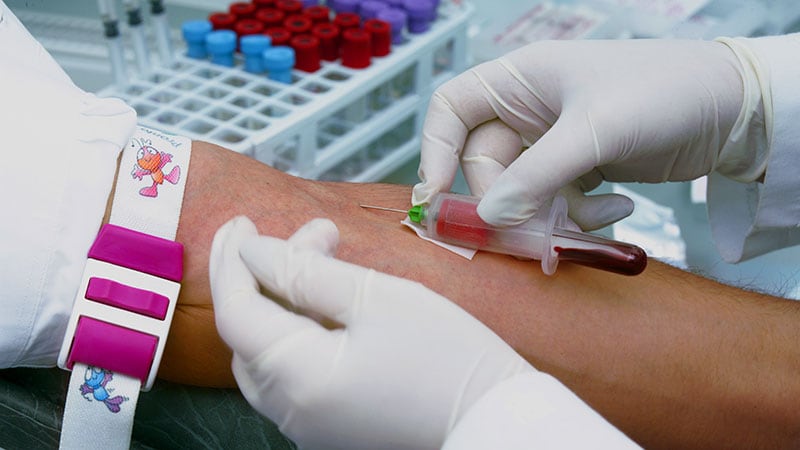Blood Biomarker Predicts Alzheimer's Development in Older Adults
Core Concepts
Blood biomarker for astrocyte reactivity predicts Alzheimer's development in older adults.
Abstract
The study focuses on a blood biomarker that measures astrocyte reactivity to predict the development of Alzheimer's disease in cognitively unimpaired older adults with amyloid-beta. The research suggests that a combination of amyloid-beta burden and abnormal astrocyte activation leads to progression to AD. The study emphasizes the importance of testing for brain amyloid and blood biomarkers of astrocyte reactivity for optimal screening to identify individuals at risk for Alzheimer's disease. The findings suggest that astrocyte reactivity is an early event preceding tau pathology, indicating a potential link to neurodegeneration and cognitive decline.
Highlights:
Blood biomarker measures astrocyte reactivity
Predicts Alzheimer's development in older adults
Combination of amyloid-beta and astrocyte activation leads to AD
Importance of testing for amyloid and astrocyte reactivity
Astrocyte reactivity precedes tau pathology
Link to neurodegeneration and cognitive decline
Blood Biomarker May Help Predict Who Will Develop AD
Stats
Investigators tested the blood of 1000 cognitively healthy individuals with, and without, amyloid-beta pathology.
Participants' mean age was 69.6 years.
Results showed amyloid-beta is associated with increased plasma phosphorylated tau only in individuals positive for astrocyte reactivity.
Quotes
"Our study argues that testing for the presence of brain amyloid along with blood biomarkers of astrocyte reactivity is the optimal screening to identify patients who are most at risk for progressing to Alzheimer's disease." - Dr. Tharick Pascoal
Key Insights Distilled From
by Pauline Ande... at www.medscape.com 06-06-2023
https://www.medscape.com/viewarticle/992830
Deeper Inquiries
How can the findings of this study impact the early detection and treatment of Alzheimer's disease?
The findings of this study suggest that a blood biomarker measuring astrocyte reactivity, in combination with amyloid-beta pathology, can help predict the progression to Alzheimer's disease in cognitively healthy individuals. This could revolutionize early detection efforts by identifying individuals at higher risk for developing AD before clinical symptoms appear. Early identification allows for timely interventions, potentially slowing down or preventing the onset of the disease. Additionally, understanding the role of astrocyte reactivity in the progression of AD could lead to targeted treatments that address this specific pathway, offering more effective therapeutic options for those at risk.
What potential challenges or criticisms could arise regarding the use of blood biomarkers for predicting Alzheimer's development?
One potential challenge is the need for further validation and standardization of blood biomarkers before they can be widely implemented in clinical practice. The reliability and accuracy of these biomarkers need to be established across different populations and settings to ensure consistent results. Additionally, there may be concerns about the cost-effectiveness of using blood biomarkers for screening purposes, as well as ethical considerations regarding the implications of predictive testing for individuals and their families. Critics may also question the specificity and sensitivity of these biomarkers in accurately predicting AD development, highlighting the need for more research to address these concerns.
How might the study of astrocyte reactivity in Alzheimer's disease contribute to understanding other neurodegenerative conditions?
Studying astrocyte reactivity in Alzheimer's disease can provide valuable insights into the underlying mechanisms of neurodegeneration that may be applicable to other neurodegenerative conditions. Astrocytes play a crucial role in maintaining brain homeostasis and responding to various insults, and abnormalities in astrocyte function have been implicated in multiple neurodegenerative diseases. By understanding how astrocyte reactivity contributes to the progression of AD, researchers can uncover common pathways shared with other conditions such as Parkinson's disease or Huntington's disease. This knowledge could lead to the development of novel therapeutic strategies that target astrocyte dysfunction as a common mechanism across different neurodegenerative disorders.
0
